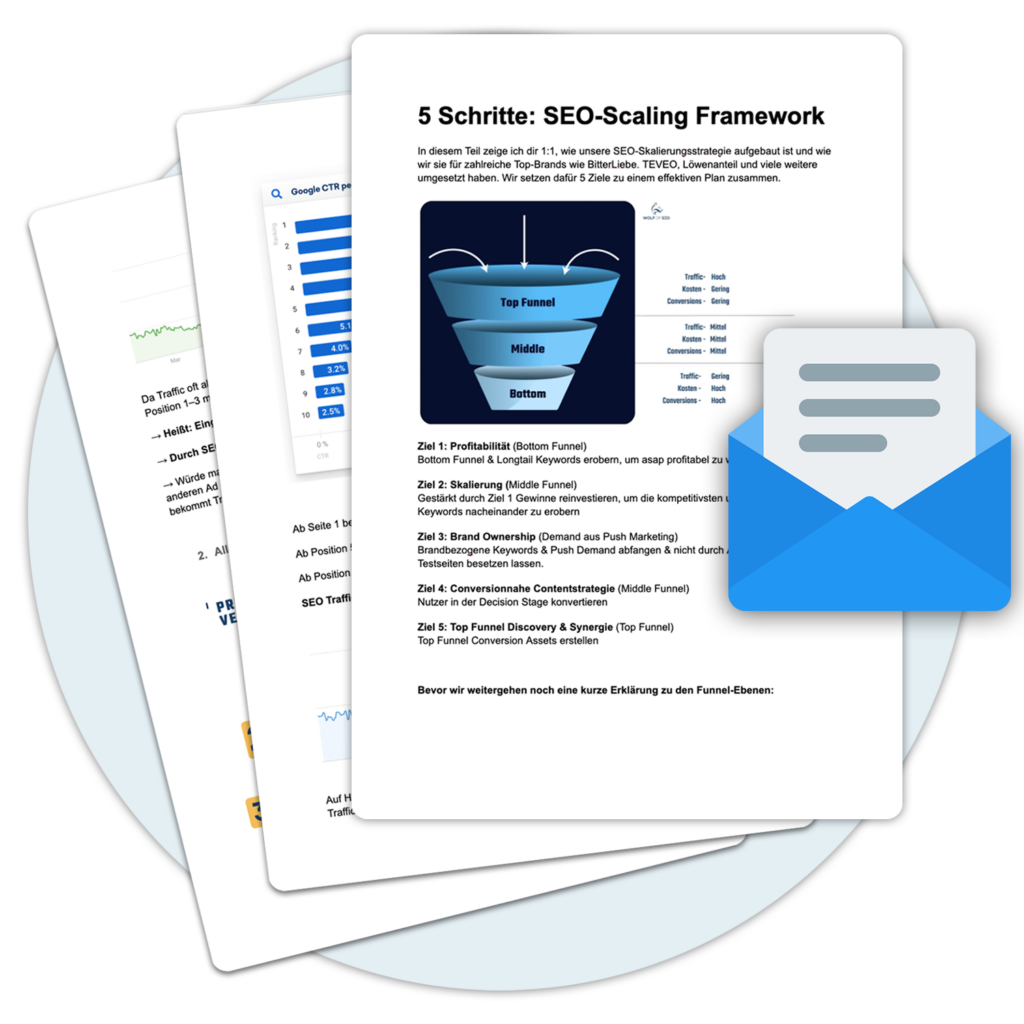Doorway pages are a good example of an old SEO practice that has turned 180 degrees. While these entry pages for the Search engine optimization worked well, they offered little benefit to Internet users. Algorithm updates from Google and other search engines like Bing or Baidu aim to keep up with searchers' intentions and deliver the best content to them with as few clicks as possible. You need to know what they are and how to clean them up.
Doorway pages for SEO - background
Before 2015, doorway pages on websites were a common practice. They were used to help websites rank well in search results. The tactic consisted of invisible text that search engines could read, but humans could not. Also Keyword stuffing and other, now questionable, practices have been used to trick search engines into ranking a website in the SERPs to improve.
Many of the tactics used on doorway pages fall under the definition of cloaking. They were used to trick the search engines into sending visitors to the site, even if they offered no added value to the searcher.
Since doorway pages were designed to control the Ranking of a website in the SERPs instead of helping visitors, the Google Webmaster-Guidelines updated in March 2015. The Google algorithm update, which includes the change of the Webmaster-guidelines, is now penalizing websites for Doorway Pages. In some cases, entire websites have been blacklisted as a result of this practice.
What used to be an acceptable SEO practice has turned into a harmful practice for websites.
Doorway Pages vs. Landing Pages
Unlike landing pages contain Doorway Pages many Keyword-variations, links to similar pages, and sometimes features that redirect web users to other destinations. In short, doorway pages serve to attract visitors to the website, but they hinder Internet users who want to go directly to a product or find an answer to their question.
Doorway pages are designed differently and often look very similar to landing pages. The main difference between landing pages and Doorway Pages is the value they provide to website visitors. Google's explanation of Doorway Pages includes
- Creating multiple domain names, subdomains, and multiple websites, with the sole purpose of increasing the "search footprint" for groups of keywords, phrases, or specific geographic regions.
- Creating numerous pages of "thin content" to direct visitors to a useful part of your site.
- Creating nearly duplicate pages only for one Keyword or certain variations of a keyword without fitting into a clearly defined browser hierarchy or offering added value to the searcher.
Landing pages, on the other hand, provide specific and relevant information to a website user. They are designed to deliver content that supports the searcher's intent, whether it's to learn something new, buy a product, or perform a specific action. While landing pages are optimized to rank well, they don't require searchers to jump through a series of hoops to get what they want.
Disadvantages
A major disadvantage of doorway pages is that they are often considered "spam" and search engines may recognize and penalize them as such. In addition, they can lead to poorly prepared content and a poor user experience, as they contain individual pages with more than one Keyword equip.
What does Google think about Doorway Pages
Google is very critical of Doorway Pages and considers them a violation of the Webmaster-guidelines. Doorway pages are pages that are specially optimized for search engines, offer little added value for the user and are generally used to increase the user's search engine traffic. Traffic redirect to another web page. They are often used to increase the number of landing pages and thus improve visibility in search engine results. At the same time, they are often full of keywords and characterized by thin or duplicated Content off.
Google's algorithm is designed to provide users with the most relevant and valuable information for their search query. Doorway pages are therefore seen as an attempt to manipulate the Search results and degrades the user experience.
In case of detection of doorway pages by Google, there is a threat of penalties ranging from devaluation of the affected pages in the search results to complete removal of the website from the Google-Index can reach. Due to these risks, it is advisable to refrain from using doorway pages and instead rely on high-quality and user-relevant Content to set.
Therefore, SEO strategies should always focus on the added value for the user and the Webmaster-Google's guidelines in order to be successful in the long term. The use of doorway pages is a short-term tactic that does more harm than good in the long run.
Security risks
Doorway pages can also pose security risks to websites, as they may contain malicious links that can cause users to enter websites that contain malware or other threats. Therefore, when creating a doorway page, care should be taken to verify all the links used.
Conclusion
Doorway pages represent a risky and outdated tool in today's SEO landscape that can do more harm than good. While they may have once been seen as a quick way to increase visibility in search results, Google has greatly improved its algorithm over time and can more easily detect such manipulative tactics. The use of doorway pages is at odds with Google's efforts to provide users with high-quality and relevant content. Therefore, websites that use such tactics are highly likely to be penalized, ranging from a reduction in visibility to complete removal from Google'sIndex can reach.
But it's not just the risk of punitive action that should serve as a deterrent. Doorway pages also create a bad User Experience, as they usually only serve as pass-throughs to other content and do not offer any added value on their own. A poor user experience can lead to a higher bounce rate and lower conversion rates, which is ultimately also detrimental to business.
At a time when Content-As quality and user experience become more and more important, the focus of any sustainable SEO strategy should be on creating value for the user. Instead of investing time and resources in creating doorway pages, it makes far more sense to invest in high-quality content and a good user experience. This not only improves search engine rankings, but also strengthens brand reputation and customer loyalty.
« Back to Glossary Index






 By
By 